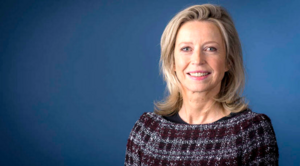The Dutch Minister of Defence, Kajsa Ollongren, tells UNU-MERIT how the Netherlands seeks to support United Nations operations in Europe and abroad
Given its small population (17.5 million) and geographical footprint (with one-fifth the land area of an average U.S. state), the Netherlands has outsized military power, ranking 39 in the GlobalFirepower Index. How is the nation using its strength, both in Europe and beyond?
Appointed in 2022, Dutch Minister of Defence Kajsa Ollongren has political willpower in her blood, her grandfather having fled Kiev during the Russian Revolution to the Dutch East Indies, where her father survived the World War II camps before moving to the Netherlands in hopes of a peaceful future.
Now, Minister Ollongren seeks to protect and spread the right to freedom and safety by working to strengthen the collective power of the European armed forces and that of NATO through enhanced cooperation, with the present goal of making the invasion of Ukraine a “never again war,” as she stated in a speech in Maastricht (the Netherlands) on 3 May, at an event organized by Studio Europa.
Ahead of Europe Day (9 May), the Minister expanded on these thoughts with UNU-MERIT, speaking to further peacekeeping ambitions through support for the UN.
What are the Dutch government’s views on present and future UN peacekeeping? And does the Netherlands plan to continue contributing troops to peacekeeping operations?
For the Netherlands, the UN peacekeeping operations are very important. I think we’ve always been a very engaged partner in UN peacekeeping. We contributed to MINUSMA (The United Nations Multidimensional Integrated Stabilization Mission in Mali), for instance. We will always look with an open mind and a will to contribute to future peacekeeping operations.
As a matter of fact, at this moment, we’re working on our Africa strategy, and part of that will be the Sahel, which we consider an area where terrorism is spreading. It’s important to have UN presence there. So that’s the perspective that we take – we value UN peacekeeping operations, and we will continue to contribute where we can.
How can the Dutch Ministry of Defence support the UN in tackling humanitarian crises?
Well, I think first of all, it’s important that the UN has a policy for tackling humanitarian crises in the world. We live in very complex times with many issues in different parts of the world, dealing with poverty, with climate change, migration as a result of that. So the UN has a very important role to play, and we will always try to be supportive of that, also from a military perspective, although the military perspective can never be the only solution. It always has to go hand-in-hand with development, with trade and with other partners. And I think it’s extremely important to cooperate with the countries themselves that are involved, with their authorities, with their military. We try to work side-by-side with countries involved.
How is the Ministry of Defense adapting its strategy to deal with the climate emergency, also in partnership with the UN?
I think for all of us, especially in the UN but also for us here in Europe and in the Netherlands and Ministry of Defence, climate change is something that we have to deal with. That means we have to adapt our own policies. But we also have to deal with the results of the climate crisis, and we have to work on preventing the results of climate change. So there is a big agenda for us. And I think it’s important that the UN has a leading role in trying to convince countries that this is something that is threatening all of us, that is threatening humanity and that we have a role to play there.
ANY COMMENTS?
NOTA BENE
The opinions expressed here do not necessarily reflect the views of UNU.
MEDIA CREDITS




